Research Article
Issue Reviewers







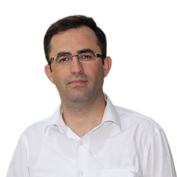








Akif KARAFİL, 1983 Bursa doğumludur. 2007 yılında Marmara Üniversitesi Elektrik Eğitimi Bölümünden lisans derecesini, 2011 yılında Karadeniz Teknik Üniversitesi Elektrik Elektronik Mühendisliği Bölümünden yüksek lisans derecesini, 2018 yılında Karabük Üniversitesi Elektrik Elektronik Mühendisliği Bölümünden doktora derecesini aldı. 2008-2011 yılları arasında Giresun Üniversitesinde, 2011-2020 yılları arasında ise Bilecik Şeyh Edebali Üniversitesinde Öğretim Görevlisi olarak görev yaptı. 2020 yılından itibaren Yalova Üniversitesi Mühendislik Fakültesi Elektrik Elektronik Mühendisliği Bölümünde öğretim üyesi olarak görev yapmaktadır. Çalışma alanları güç elektroniği, rezonans dönüştürücüler, indüksiyon ısıtma sistemleri, şebeke etkileşimli eviriciler, maksimum güç noktası izleme algoritmaları, pals yoğunluk modülasyonu kontrolü, elektrikli araçlar ve fotovoltaik sistem uygulamaları üzerinedir.
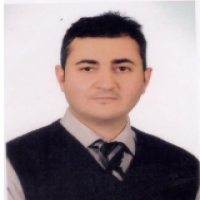
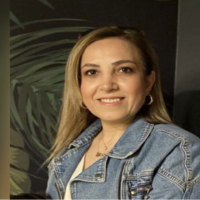


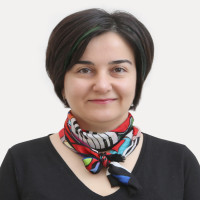


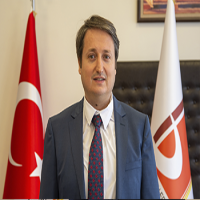
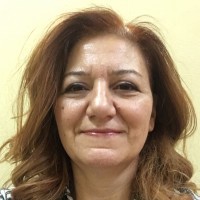
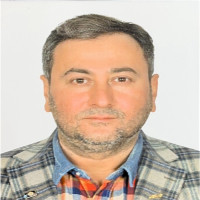



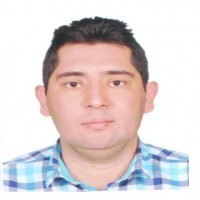
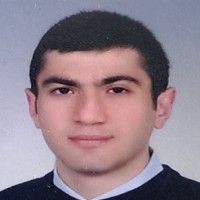
1981 yılında Mardin’de doğdu. İlk, Orta ve Lise öğrenimini Ankara’da tamamladı. Lisans eğitimini; Orta Doğu Teknik Üniversitesi, İnşaat Mühendisliği Bölümü’nden 2004 yılında tamamlayarak mezun oldu. Yüksek lisans ve doktora eğitimini; Georgia Teknoloji Enstitüsü, Atlanta, ABD’de sırasıyla 2006 ve 2009 yıllarında tamamladı. 2006 yılında başladığı doktora çalışmalarında, Georgia Ulaştırma Dairesi tarafından desteklenen bir proje kapsamında betonarme kirişlerin yanal stabilite davranışlarını deneysel ve teorik olarak araştırdı. 2015 yılında doçentlik ünvanına hak kazandı. Bilimsel çalışmalarını 30'un üzerinde makale ve birçok ulusal ve uluslararası bildiri ile değerlendirdi. “American Concrete Institute, Structural Journal”, “American Society of Civil Engineers, Journal of Structural Engineering”, “Engineering Structures”, “Journal of Constructional Steel Research”, “Magazine of Concrete Research”, “Bulletin of Earthquake Engineering” ve “ASTM Journal of Testing and Evaluation” gibi alanında son derece saygın dergilerde yayınları bulunmaktadır. “Betonarme”, “Çelik Yapılar”, “Mukavemet” ve “Yapı Statiği” gibi yapı mühendisliği alanının en temel derslerini verdi. İngilizce, Almanca, Arapça, İspanyolca bilmektedir. Evli ve bir çocuk babasıdır.

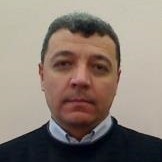


 Web
Web


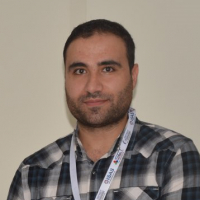
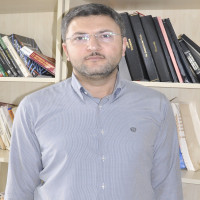
He received B.S. degree in Physics from Middle East Technical University in 2005. Then he received the M.S. degree in Electrical and Electronics Engineering from Atılım University in 2009. After that he received the Ph.D degree in Electrical and Electronics Engineering from Atatürk University in 2013. His currently research area is wave diffraction, reflection, propagation, shielding and wireless sensor networks. He is currently working at Bursa Technical University in Electrical and Electronics Engineering department.
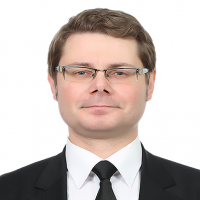
Main research topics:
• Vehicle engineering / Automotive systems,
• Vehicle design,
• Chassis systems engineering,
• Vehicle suspensions & steering,
• Ground vehicle dynamics,
• Failure analysis and prevention in vehicle design,
• Vehicle structures,
• Applied optimisation in vehicle engineering,
• Defence engineering,
• Electromobility.
Current research interests:
• Chassis systems design for special purpose vehicles: multi-axle land platforms, heavy-duty commercial vehicles, articulated vehicles / trailers, tracked vehicles,
• Alternative urban transportation: design of electric vehicles / urban electric microcars,
• Failure analysis and optimal design of vehicle components and structures,
• Dynamics of special purpose land vehicles,
• Modelling, design, optimisation and manufacturing of vehicle suspensions, axle systems and steering systems (including multi-axle steering systems for special purpose land vehicles and trailers),
• Design and optimisation of chassis and vehicle body structure,
• Powertrain modelling / Drivetrain dynamics.
Since 2006, he has been serving as a project consultant for automotive industry. He has been directing projects related to design and optimisation of suspensions, steering linkages, chassis, body and the other mechanical subsystems of wheeled vehicles. Moreover, he is investigating the effects of the design parameters of suspension and steering systems on handling behaviour and dynamics of wheeled and tracked land vehicles. He is also interested in topology optimisation-based lightweight design applications in vehicle engineering.
He is a member of SAE International.

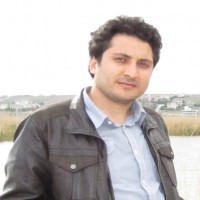
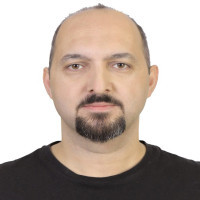
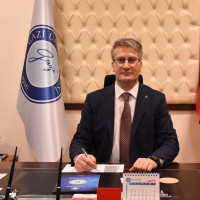
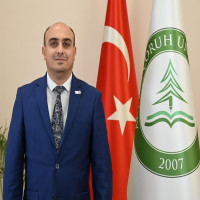
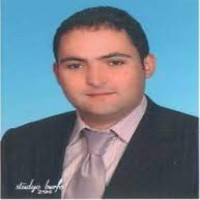

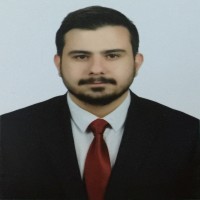
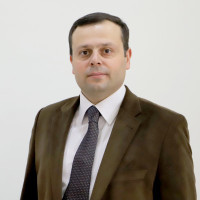






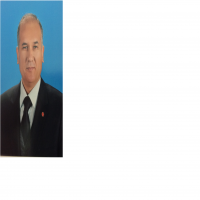



 Web
Web
He received his Bachelor's, Master's and PhD degrees from Marmara University. His research interests include Machine Learning, Artificial Intelligence, Internet of Things, High Performance Computing.
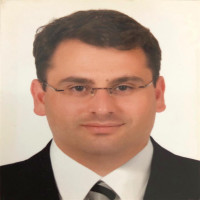

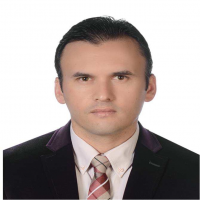
1993 yılında Akdeniz Üniversitesi Isparta Mühendislik Fakültesi Makine Mühendisliği Bölümü’nden mezun oldu. Atatürk Üniversitesi Mühendislik Fakültesi Makine Mühendisliği Bölümü’nde 1994 yılında araştırma görevlisi olarak göreve başladı. 2001 yılında Yüksek Lisans ve Doktora çalışmasını University of Bristol’da (İngiltere) tamamlayarak Türkiye’ye döndü. Atatürk Üniversitesi Mühendislik Fakültesi Makine Mühendisliği Bölümü İmalat ve Konstrüksiyon Anabilim dalında 2001 yılında Yardımcı Doçent, 2006 yılında Doçent ve 2011 yılında ise Profesör kadrosuna atandı.
Akademik çalışmalarını Biyomekanik, implant tasarımı, mühendislik optimizasyonu, makine tasarımında olasılık yöntemleri ve bilgisayar destekli mühendislik alanında sürdüren Dr. Kaymaz’ın bu alanda yayınlanmış 50’ya yakın makalesi bulunmaktadır. 2002-2005 yılında Universitat der Bundeswehr (Münih-Almanya) ve 2006 yılında Institut Francais De Mecanique Avancee (IFMA) Fransa’da misafir öğretim üyesi olarak bulundu.
Hem yurt içi (TÜBİTAK, DPT, BAP, BOREN vs.) hem de yurt dışı pek çok projede, proje yürütücüsü ve araştırıcısı olarak görev olarak başarıyla sonuçlandırdı. Ayrıca TÜBİTAK 1001, 1007 (KAMAG) ve TEYDEB araştırma projelerinde panelist ve proje izleyiciliği gibi görevler de yürütmektedir. Probabilistic Engineering Mechanics, Journal of Engineering Design, Engineering Structure, vb. uluslararası dergilerde hakemlik tecrübesi de bulunmaktadır.






 Web
Web
Aim & Scope
“ Journal of Polytechnic of Gazi University”, which includes both experimental and theoretical studies in basic engineering areas, prioritizes publication of articles on rapidly developing fields of engineering and aims to focus on interdisciplinary methods and technologies and to convey the latest scientific and technological developments in engineering science to researchers, engineers and related masses. Scientific studies submitted to the journal must not be in the evaluation phase for publishing elsewhere as published or oral or poster presentations.
“ Journal of Polytechnic of Gazi University” concentrates on original researches about engineering and technology. Original researches and scientific reviews in engineering and technology fields are considered for publication in this Journal. The publication languages of the journal are Turkish and English. Manuscripts previously published in another journal are not accepted. Practical and theoretical studies are appropriate for this Journal. A review article is expected to give in-depth information and satisfactory evaluation of a engineering subject or technologic development, supported with an extensive reference list. Also, Short communication notes may be published in this Journal. These notes include a new method or technique, which can be explained important conclusions of a investigation.
Author Guidelines
Journal of Polytechnic-Politeknik Dergisi accepts scientific original articles in Turkish or English in order to create scientific communication between scientists working in the fields of Science and Engineering.
Research Article: Studies reflecting the original research with its findings and results,
Review Article: Reviewing sufficient scientific articles and summarizing the subject at the level of information and technology at the present day, evaluating and comparing these findings,
Technical Note: Articles describing a new method or technique explaining the important findings of a research.
Copyright of all manuscripts must be filled out by all authors of the manuscript and submitted to the editor. Publications of the Authors that do not signed the Copyright Agreement Form are not processed. No add-ons can be made by the authors on the articles that were decided to be published.
Each article is sent to at least two referees in terms of form and content. The articles that are determined to be published in the journal are prepared for publication.
Preparation of Manuscripts
1. TEXT should be written in Times New Roman font and 12 pt, not exceeding 20 pages except for review articles including references and figures. Authors should state what kind of article his/her article is.
2. TITLE of the work should be written in Turkish and English, the first letter of which must be capital, and the title should be short and clear.
All the first degree titles in the text should be written in capital letters, the first letters of all the words in the second degree titles should be capitalized and the first word of the title should be in capital letters for the third and lower headings (all the headings and subheadings used in the text should be specified in parentheses. Articles in English should not include any brackets. All text must be in English)
3. ABSTRACT should be written in Turkish and English, not exceeding 200 words.
4. KEYWORDS: At least 3 maximum 5 keywords should be given in Turkish / English.
5. COORDINATION of the MANUSCRIPT: Generally covers the introduction, method, findings, conclusion and discussion, respectively.
6. REFERENCES: In the text [1], [2] etc. numbers should be numbered and written at the end of the text.
If the reference is an article: the first letter of the author's surname, authors’ name, the full title of the article in quotation, the name of the journal (if available international abbreviations), volume no: start and end page of the article, (year).
Example: Sözen A., Özbaş E., Menlik T., Cakir MT, Guru M. and Boran K., '' Improving the thermal performance of diffusion absorption with alumina nanofluids '', International Journal of Refrigeration, 44: 73 -80, (2014).
If the reference is a book: the first letter of the author's surname, author’s name, title of the book in quotes, the volume no, the editor, if any, the name of the publisher, the publication number, the place of publication, (year).
A section from the reference book: The first letter of the last name of the author of the section, author’s name, title of the section in quotation, the name of the book from which the department was taken, the name of the publisher, the place of publication, (year).
If the reference is a published thesis: Name of the author's surname, author’s name, title of the thesis, the type of the thesis (master, doctorate), the university and institute where it is presented, (year).
If the reference is a proceeding: the first letter of the author's surname, authors’ name, title of the paper in the quotation, the name of the congress, the place where it was made, the beginning and ending page of the proceeding, (year).
If the reference is a standard: the standard number, the name of the standard in quotation, (year).
7. TABLES & FIGURES: All images without charts (photographs, drawings, diagrams, graphs, maps, etc.) should be named as Figure. Each chart and figure should be placed in the text. All figures should be numbered consecutively within the text.
8. FORMULAS & UNITS: All formulas in the text should be written in equation format. Formulas (1), (2) should be given the sequence number. All units must be in the SI unit system.
9. NOMENCLATURE can be given at the end of the text before the REFERENCES.
10. ACKNOWLEDGEMENT: If people or institutions are to be acknowledged, they should be written in this section and given before the REFERENCES.
Ethical Principles and Publication Policy
Price Policy
Politeknik Dergisi makale gönderimi veya basım aşamasında herhangi bir ücret talep etmemektedir.
This work is licensed under Creative Commons Attribution-ShareAlike 4.0 International.